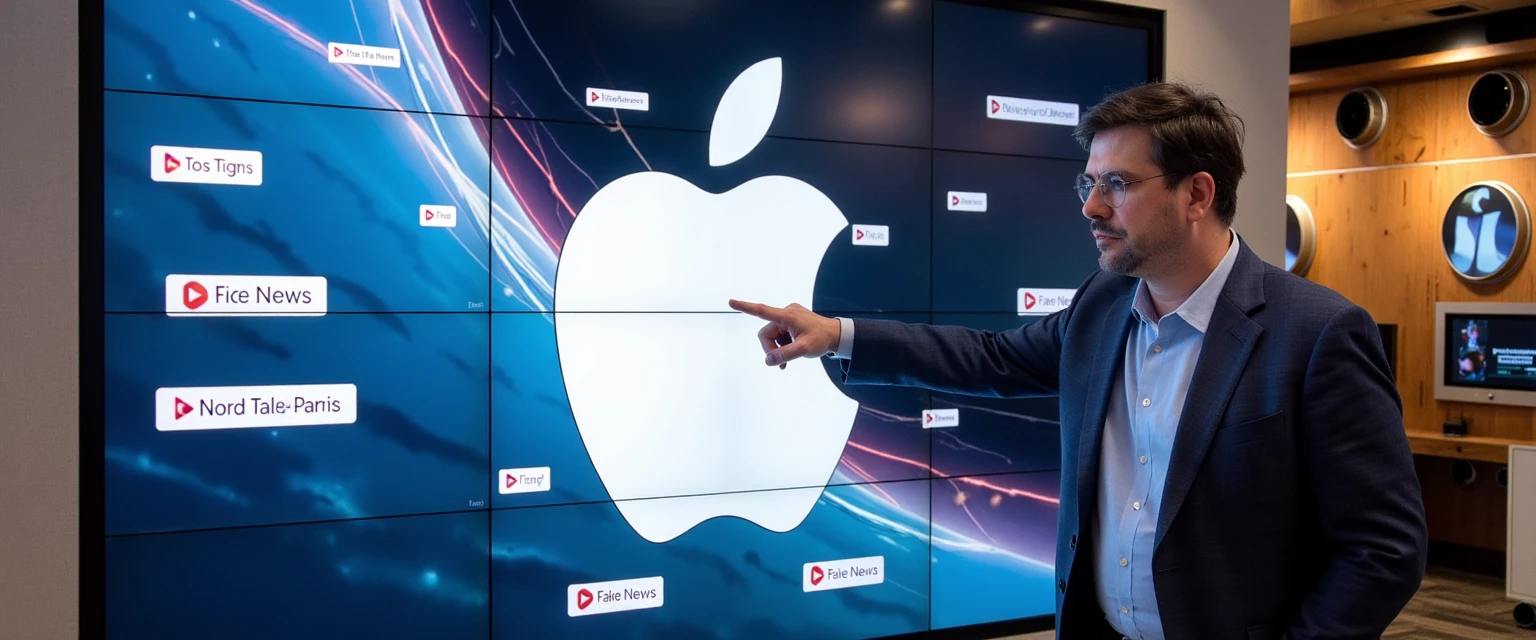AI Radar: The Technological Gap Between Global Powers and Latin America – How to Avoid Falling Behind
April 20, 2025 | by Matos AI

We are witnessing in real time the deepening of a global divide that will define the future of nations for decades. The speed at which Artificial Intelligence advances is creating an ever-widening gap between technologically advanced countries and those on the fringes of this revolution – and Latin America, unfortunately, is on the most vulnerable side of this chasm.
Eduardo Viola, political scientist and professor of International Relations at FGV and USP, brings a blunt warning: “The acceleration of the combination of artificial intelligence, quantum computing and biology is creating a new dynamic of global power”. According to Viola, China and the United States are at the epicenter of this technology race, while our region watches from a distance.
But what does this really mean for us? And more importantly, what can we do about it?
Join my WhatsApp groups! Daily updates with the most relevant news in the AI world and a vibrant community!
- AI for Business: focused on business and strategy.
- AI Builders: with a more technical and hands-on approach.
The Technological Abyss and the New World Power Map
When we talk about technological disparity, we are talking, in practice, about national sovereignty, employability and economic competitiveness. The nations that dominate AI today will be dictating the rules of the game tomorrow – not only in trade relations, but in virtually every aspect of society.
The US-China duopoly in advanced technologies is no accident. It is the result of massive investments in research, talent development, and computing infrastructure. Meanwhile, here in Latin America, we are still debating basic issues of digital inclusion and connectivity.
The question is not whether this chasm will affect our economies, but when and how deeply. The evidence suggests it will be sooner and more intense than many imagine.
The Impact of AI on Diverse Sectors – From Adult Entertainment to Language
AI’s ability to transform traditional industries is manifesting itself in surprising areas. According to Estadão, the adult content industry is already facing disruption from AI-generated pornography, raising questions about copyright, non-consensual deepfakes and business models.
Meanwhile, even lexicography – the art and science of compiling dictionaries – is being reinvented. The Globe reports that in the 50th anniversary of the Aurélio dictionary, we are witnessing how AI can transform the way we document and interact with our own language.
The irony is unmistakable: the same technology that threatens jobs is also preserving and evolving cultural elements such as the Portuguese language. The paradox of AI always fascinates me: it simultaneously threatens traditions and reinvents them for the future.
The Great Debate: Which Professions Will Survive?
Perhaps no topic related to AI is as hotly debated as its impact on the job market. Veja magazine projects a scenario in which even professions previously considered “safe,” such as radiologists, may face replacement.
I see a lot of anxiety among professionals across all sectors when I discuss this topic in my lectures. The uncomfortable truth is that repetitive, predictable jobs that do not require high levels of creativity or emotional intelligence are, in fact, under threat.
But there’s another side to this story: new professions are emerging, and hybrid skills (combining technical expertise with uniquely human capabilities) will become increasingly valuable. In my work with startups and companies undergoing digital transformation, I’ve seen a growing demand for “translators”—people who can navigate the gap between the world of technology and the human and business challenges.
Training as a Response to Disruption
Faced with the transformation scenario, training emerges as an evident response. Catraca Livre highlights a free IBM-certified course that seeks to democratize knowledge about AI fundamentals.
Initiatives like this are vital, but we need to be honest: isolated courses will not be enough to close the talent gap. We need a systemic approach that combines:
- Reformulation of educational curricula from elementary school onwards
- Public-private partnerships for talent development
- Incentives for companies to invest in the retraining of their employees
- International talent attraction programs in strategic areas
In my experience building and accelerating startups, I see clearly that access to qualified talent is often the biggest bottleneck to growth. The country that solves this challenge will have a significant competitive advantage.
AI, Politics and Social Control: A Delicate Balance
The application of AI in governments raises questions about the balance between efficiency and individual freedoms. Lance reports how the Trump administration in the US is exploring AI to increase government efficiency, but faces criticism over security and privacy.
This debate is not unique to the US. In Brazil, we see government digitalization initiatives that, while promising, rarely consider issues such as algorithmic biases and digital exclusion. When automated systems make decisions about social benefits, for example, who is held accountable for mistakes?
The line between innovation and surveillance is thin. The use of AI in the Brazilian judiciary, as discussed by Legal Consultant, exemplifies this dilemma. Efficiency is sought, but at what cost to due process?
Reputation and Trust in the Age of AI
Public perception of technology is becoming increasingly critical for companies. According to research cited by Brasil 247, association with Elon Musk and inappropriate use of AI are seen as significant risks to brands’ reputations.
This data reveals something important: technology is not neutral in public perception. Consumers are increasingly aware of how their information is used and how technology can impact society.
Companies that adopt AI without considering ethical and social issues will face increasing market resistance. In contrast, those that adopt transparent and human-centered approaches have the opportunity to differentiate themselves positively.
We no longer distinguish what is real from what is synthetic. G1 reports how a genuine video of a school of sea bream was mistaken for an artificial creation. This confusion illustrates how AI is blurring the lines between the authentic and the artificial, creating challenges to our perception of reality.
Brazil at the Crossroads: Strategies to Avoid Being Left Behind
Where does Brazil stand on this global stage? Unfortunately, we are still more of an observer than a protagonist. Despite having exceptional talent and some promising initiatives, we lack a coherent national strategy for AI.
What can we do? Based on my experience working with innovation ecosystems in several countries, I see some possible paths:
- Define strategic focus areas – We cannot compete on all fronts, but we can become a reference in specific niches such as agtech, fintech or healthtech, where we already have competitive advantages.
- Increase investments in basic and applied research – Universities and research centers need consistent resources and autonomy to develop proprietary technologies
- Create incentives for talent retention – We need to stop the brain drain and attract Brazilians who are abroad
- Promote strategic international partnerships – Seek collaborations with technological powers that allow us to accelerate our learning curve
- Develop a balanced regulatory framework – That protects fundamental rights without stifling innovation
The Path Ahead: Preparing for a World Transformed by AI
Technological acceleration shows no signs of slowing down. On the contrary, with the advancement of quantum computing mentioned by Professor Viola, we should expect even more significant leaps in the coming years.
For companies, the time to act is now. It’s not just about implementing AI tools, but about rethinking business models, developing talent, and building an adaptive organizational culture. In my mentoring work with companies, I have insisted that genuine digital transformation is 20% technology and 80% culture and people.
For professionals, the path forward involves developing what I call an “automation-resistant skills portfolio” – capabilities such as critical thinking, creativity, emotional intelligence, adaptability and continuous learning.
And what about Brazil as a nation? We need visionary leadership that understands what is at stake. The technological divide is not just an economic issue, but a threat to our sovereignty and global relevance in the 21st century.
In my mentoring sessions with Brazilian startups, I realize that we have the talent and creativity needed to compete globally. What we lack are the systemic conditions and the sense of urgency that the moment demands.
The time for theoretical debates is over. We need concrete action, significant investment and a strategic vision that positions Brazil as a protagonist, not a mere spectator, of the AI revolution.
The future doesn’t wait. What are you doing to prepare for this world transformed by AI?
✨Did you like it? You can sign up to receive 10K Digital's newsletters in your email, curated by me, with the best content about AI and business.
➡️ Join the 10K Community here
RELATED POSTS
View all



